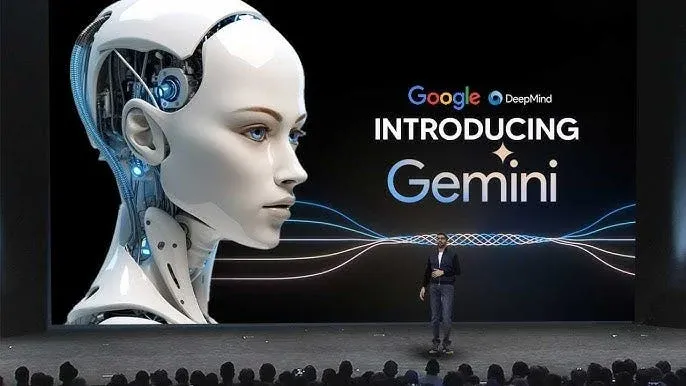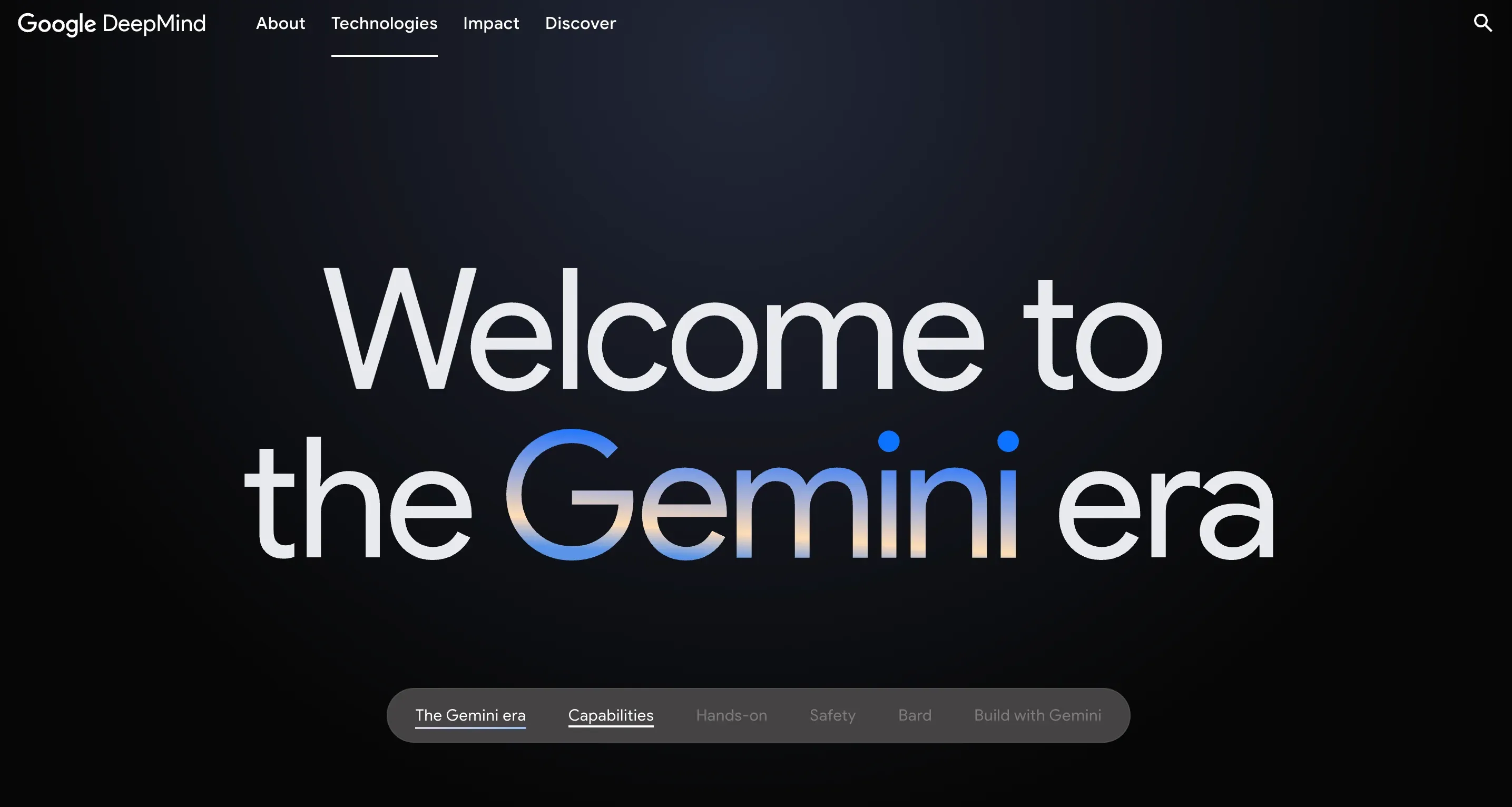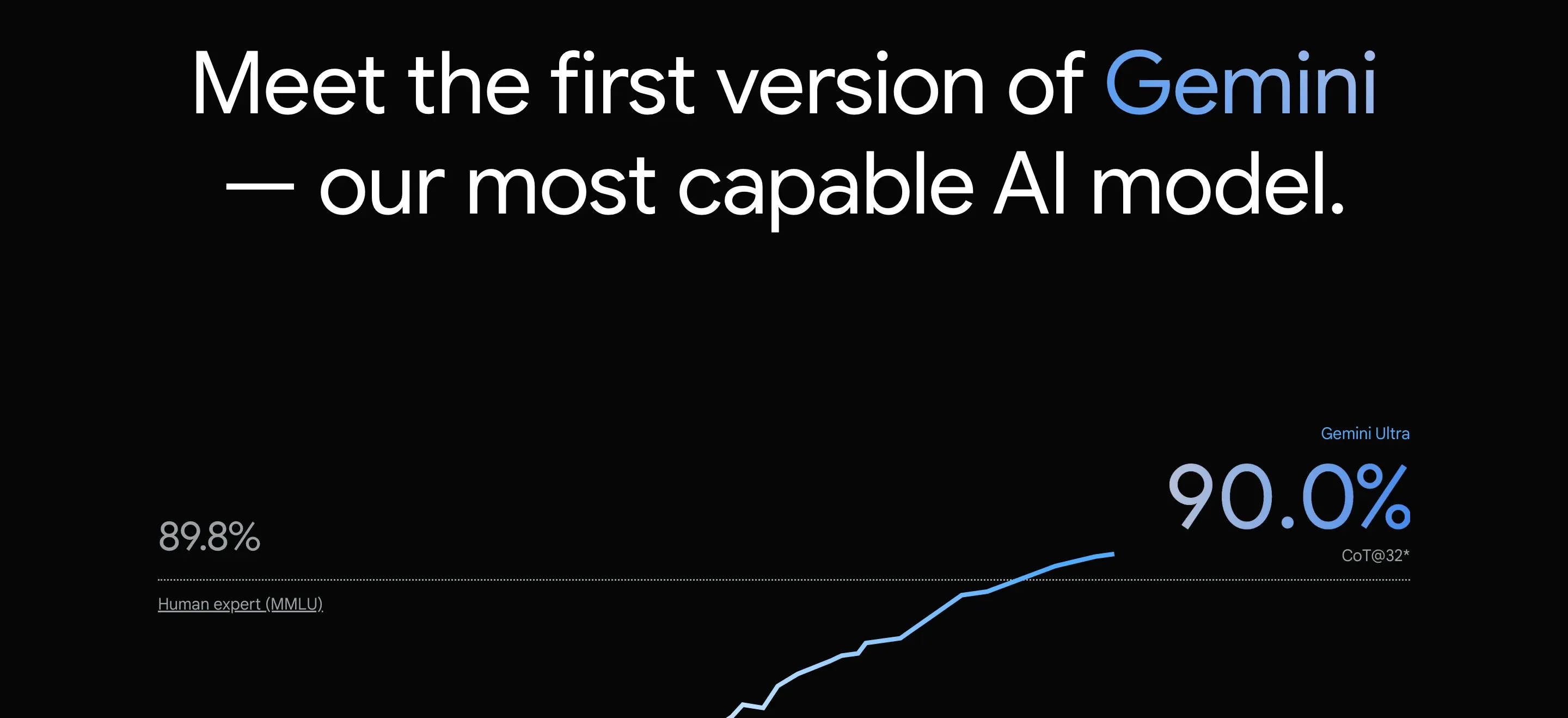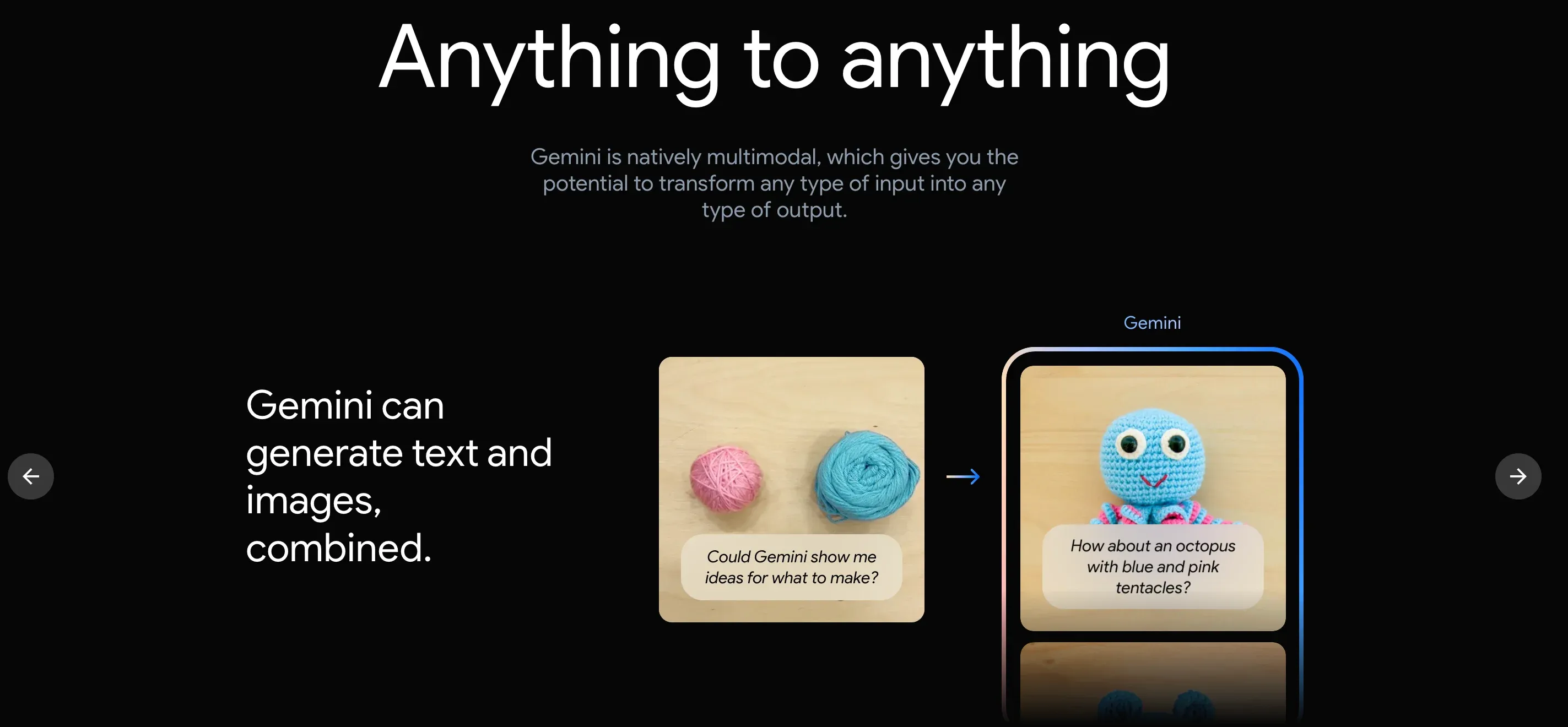AI has feelings. As unreal as that might sound, it's not far from the truth. We're living in a time when the line between human and machine is getting thinner. And Google's Gemini is the perfect example of this strange new world.
Did you ever think a machine could get your sarcasm? Or understand when you're down? Look, I’m not saying machines are emotional beings, but Gemini comes darn close. It's got this knack of picking up moods from text and responding in kind. It's more than a chatbot; it's a conversation whiz.
Gemini isn't just about talking, though. It's a learner. Picture this: a bot that picks up on your chat patterns and tailors its next responses accordingly. Sounds like something from a sci-fi flick, right? But that's what Gemini does, and it's revolutionizing how we view AI.
What's more, Gemini doesn't just respond in different languages. It understands them too. It's like having a friend who’s a polyglot, but better. Because, hey, it's a bot that 'gets' slang, everyday expressions, and probably even your lame puns.
Sure, it might feel a bit unsettling at first. But it’s also incredibly exciting. Gemini's blending of human-like traits with a digital format is disrupting the AI landscape. And while this might sound like the future, it's happening right now.
Get ready to dive into the world of Gemini, where the line between human and machine is blurry, and conversations with bots are getting a whole lot more interesting. Because, let's face it, who wouldn't want a chatbot friend who just 'gets' you?
What is Google's Gemini?
Google's Gemini is a chatbot. But not your average one. It's advanced. Think of it like the super smart cousin of ordinary chatbots. Google cooked it up in their tech lab for one main reason.
They wanted to make a bot that can talk almost like a human. That's right, it's designed to understand and chat with you just as if it were another person.

So, what sets Gemini apart? For starters, it's built on Google's vast database. This means it can pull out a crazy amount of info when you ask it a question. And thanks to something called machine learning, it gets better with each chat. It learns from your chats, so the more you use it, the smarter it gets. Pretty handy, right?
The technology behind Gemini is called artificial intelligence or AI for short. This kind of tech is designed to mimic how humans learn. It's what lets Gemini pick up new knowledge from the stuff it reads or hears from you.
Gemini isn't just about tossing out info though. It's also built to understand emotions and sentiments. This means it can gauge your mood from your words and respond accordingly, which is seriously cool.
So, to sum up, Google's Gemini is a clever chatbot that learns from you. It's good at understanding you and it can chat back in a very human-like way. This makes it stand out from most of the robos you meet. And it's this human-like ability that could see it become a tough competitor to ChatGPT.
Key Features of Google's Gemini
Google's Gemini packs some neat tricks under its hood. Think of it as a swiss army knife for online chatting, but smarter. It's not just about what it can do; it's about how well it does it, turning every chat into something close to a face-to-face talk. Here are its standout features:
Conversational Skills
Gemini gets how people talk. It doesn't just pick up on keywords; it gets phrases and slang. That means chatting feels normal, not robotic.
Learning on the Go
Every conversation teaches Gemini something new. It doesn't just remember facts; it learns patterns. This way, it gets better at predicting what you'll say next.
Emotional IQ
It reads between the lines. Gemini can figure out if you're happy, frustrated, or joking and tailors its replies to fit your mood.
Multitasking Mastery
Gemini juggles topics like a pro. You can switch from sports to science, and it keeps up. This lets you have wide-ranging conversations without missing a beat.
Quick Thinking
Speed is key. Gemini replies fast, keeping the back-and-forth brisk and lively, much like chatting with a quick-witted friend.
Language Flexibility
Speaks your language, literally. Whether you're throwing in a bit of Spanish or French, Gemini aims to follow along and respond appropriately.
Privacy Aware
Your secrets stay safe. Gemini's designed to respect your privacy, so it knows when to keep things on the down-low.
By focusing on these features, Gemini steps up the game for chatbots. It's like it's trying to close the gap between typing to a screen and talking to someone who's actually in the room with you.
Comparing Gemini to ChatGPT
Both Gemini and ChatGPT come with some serious AI muscle. They're strong contenders in the chatbot space, and people can't stop talking about them. But how do they match up against each other? Let's break it down by comparing some key aspects:

Speed and Response Time
Gemini shines with its quick replies. Chatting with it feels more like bantering with a friend.
ChatGPT also does well, but Gemini's speed gives it a slight edge.
Emotion Recognition
Both are pretty skilled at picking up emotions from text, so you can expect thoughtful responses from either of them.
However, Gemini seems to have a higher emotional IQ, which translates to more empathetic conversations.
Learning and Adaptation
Both chatbots use machine learning to improve, so they get smarter over time.
Gemini seems to have a slight advantage when it comes to learning from chat patterns and predicting users' needs.
Versatility
ChatGPT is multi-purpose and helps with different tasks, like writing emails and answering questions.
Gemini puts the focus on chatting and stands out because of its well-rounded conversational skills.
Language Support
Gemini is quite the polyglot and gets points for understanding and responding in multiple languages.
ChatGPT is no slouch, but Gemini shows a bit more flexibility in this area.
User Experience
Google designed Gemini to mimic human-like conversations, making it feel more natural and engaging.
ChatGPT is great at providing information and assistance but may not have the same immersive experience as Gemini.
In a nutshell, both chatbots have their strengths, with ChatGPT excelling in practical tasks and Gemini winning in more natural, human-like chats. The competition is stiff, and both contenders will keep pushing the limits of AI-powered communication.
Suggested reading: How Google's Gemini Can Improve Your Business Operations?
How Google's Gemini is Shaking Up the AI Landscape?
Google's Gemini is making waves in the tech world, and for good reasons. It's not just a chatbot; it's a sign of where things might go in the AI space. Here's why.
Gemini isn't just a tool; it's a step towards more natural human-machines interactions. It doesn't just understand language. No, it picks up the small stuff like slang and everyday expressions. This makes chatting with it feel more like talking to a witty friend than a bot. And that’s huge.
Then there's Gemini's ability to learn. It's not about memorizing facts. Any bot can do that. Gemini goes further. It picks up patterns from your chats. The more you chat, the better it gets at guessing what you'll say next. This is what makes it stand out in the crowd of chatbots and learns to interact more effectively.
Moreover, Google's Gemini is raising the bar in terms of emotion recognition. It looks at the text and figures out your mood. So, if you're sounding upbeat, it responds in the same spirit. If you're down, it gets that too. Smarter emotional responses mean more meaningful interactions, which is great progress in AI communication.
Lastly, Gemini's promise of multi-language support takes things up a notch. That it doesn't just respond in different languages, but it understands them, is groundbreaking.
So, Google's Gemini is definitely shaking things up. It's pushing the boundaries of AI and redefining what chatbots can do. But most of all, it's showing how AI can be more human and how that can make a world of difference.

Implications and Future Prospects
What does Gemini's arrival mean for the AI landscape? This tech breakthrough has the potential to rewrite the book on how we interact with machines. And it's worth considering what this could bring in the near future.
First up, this might be the start of genuinely human-like AI companions. Think digital friends who understand your moods, hobbies, and likes, who offer genuine support, and who keep you company. Sounds pretty neat, right?
But it's not just about personal companions. Gemini's skills could change the game in fields like customer support and healthcare. Imagine chatbots who talk to customers without a script, who empathize with patients, and who adapt their responses. This could transform these industries by making people feel heard and offering more personalized solutions.
On the flip side, some concerns arise, like job displacement. As AI gets smarter, there might be less need for humans to do certain jobs, like sending out mass emails or fielding call center inquiries. How we adapt to these changes will be key.
Gemini's language abilities could also make for better smart home devices and virtual personal assistants. Imagine giving instructions in a mix of languages and having your AI gadget adapt, no fuss. That could make for some multitasking magic.
What it all boils down to is a more natural and empathetic AI, which creates better user experiences. And as Gemini pushes the envelope, competition will heat up, encouraging other players to keep innovating.
Where's it all headed? It's hard to say for sure. But one thing's certain: chatbots like Gemini are setting a new bar for tech. With human-like AI comes a new dawn of possibilities - and challenges - that could redefine how we interact with machines. And that's pretty exciting.

Conclusion
So, there it is. Gemini is shaking up the AI landscape with its conversational skills, emotional IQ, and growing language abilities. It's like chatting with a quick-witted friend who’s ready to learn and adapt. It's a game-changer in how we perceive AI and interact with chatbots.
Looking ahead, the implications are huge. From personal AI companions to transforming industries like customer support and healthcare, the potential is limitless. But there are challenges linked to job displacement and how we adapt to this increasingly smart technology.
In the end, Gemini's human-like AI is reshaping our interaction with machines. No doubt, we're stepping into an exciting time in the tech space, and it’s only just begun.
Suggested reading: Should You be Using Gemini? Pros and Cons of Google's AI
Frequently Asked Questions (FAQs)
How is Gemini's learning ability different from other AIs?
Gemini stands out because it doesn't rely on scripted responses; it learns from user interactions.
The more you chat, the better it gets at anticipating your preferences and adapting its responses, making conversations feel more natural.
Can Gemini's emotion recognition feature compromise user privacy?
As with any AI, privacy is a concern. However, developers are expected to prioritize user privacy while designing such tools.
They must follow privacy guidelines and data protection regulations to ensure that emotion recognition doesn't come at the cost of your personal information.
How compatible will Gemini be with current platforms and apps?
While specific compatibility details aren't available, it's expected that a cutting-edge AI like Gemini would be designed to work seamlessly with multiple platforms and apps.
Its integration capabilities could lead to more personalized experiences across various services.
Is there a timeline for when Gemini will be widely accessible to the public?
As of now, there's no concrete timeline for when Gemini will be available to the public.
However, given its groundbreaking potential and Google's commitment to pushing boundaries in AI technology, we can expect Gemini's broader rollout in the foreseeable future.


